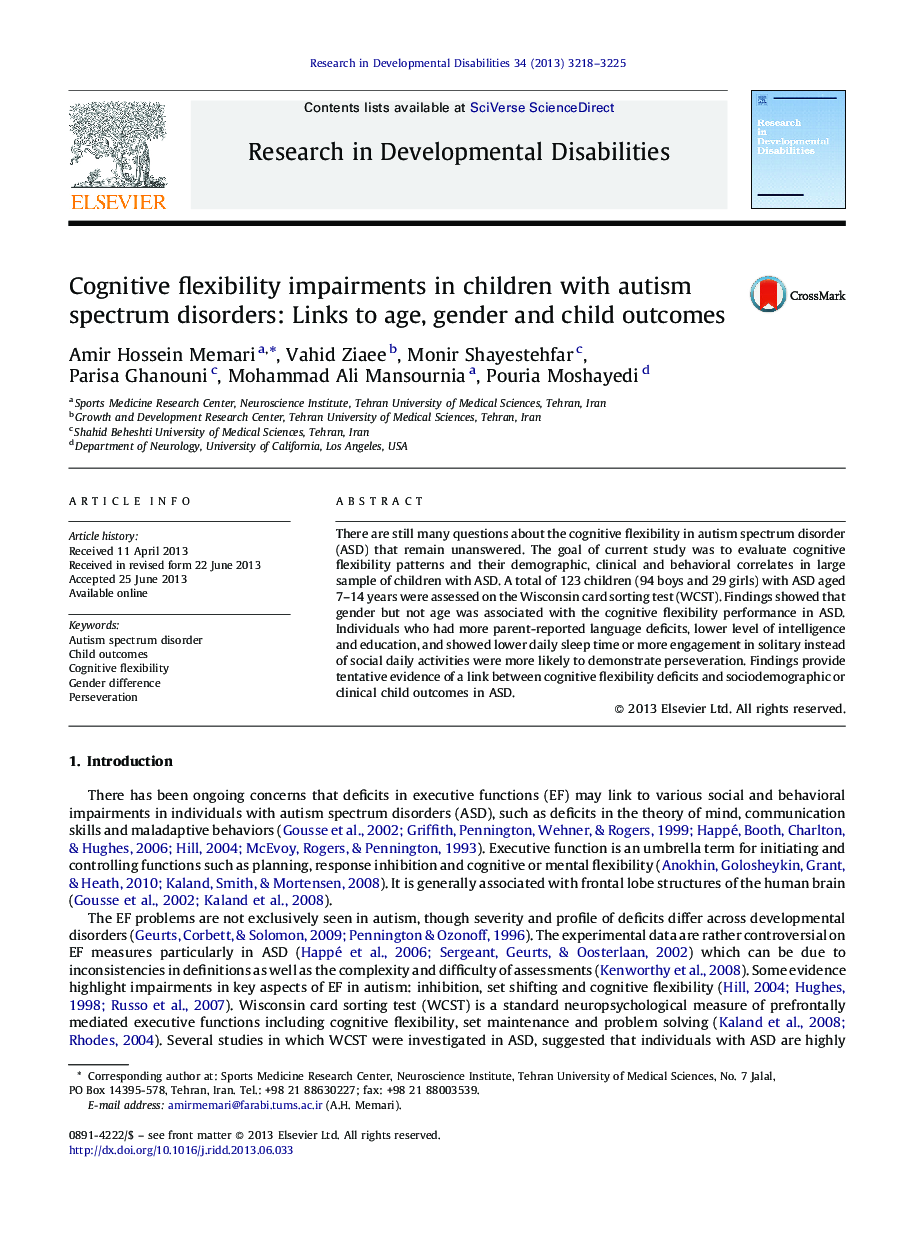| Article ID | Journal | Published Year | Pages | File Type |
|---|---|---|---|---|
| 10317881 | Research in Developmental Disabilities | 2013 | 8 Pages |
Abstract
There are still many questions about the cognitive flexibility in autism spectrum disorder (ASD) that remain unanswered. The goal of current study was to evaluate cognitive flexibility patterns and their demographic, clinical and behavioral correlates in large sample of children with ASD. A total of 123 children (94 boys and 29 girls) with ASD aged 7-14 years were assessed on the Wisconsin card sorting test (WCST). Findings showed that gender but not age was associated with the cognitive flexibility performance in ASD. Individuals who had more parent-reported language deficits, lower level of intelligence and education, and showed lower daily sleep time or more engagement in solitary instead of social daily activities were more likely to demonstrate perseveration. Findings provide tentative evidence of a link between cognitive flexibility deficits and sociodemographic or clinical child outcomes in ASD.
Related Topics
Life Sciences
Neuroscience
Behavioral Neuroscience
Authors
Amir Hossein Memari, Vahid Ziaee, Monir Shayestehfar, Parisa Ghanouni, Mohammad Ali Mansournia, Pouria Moshayedi,
